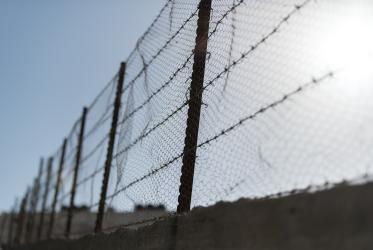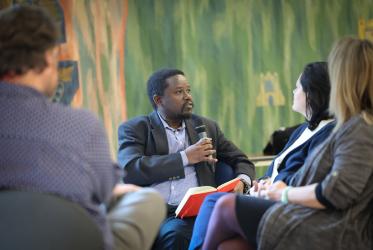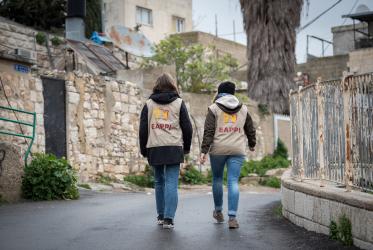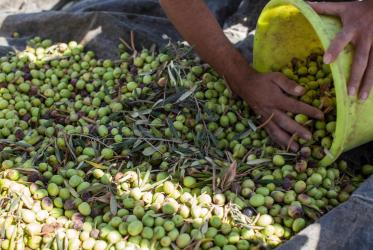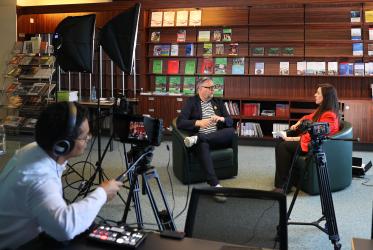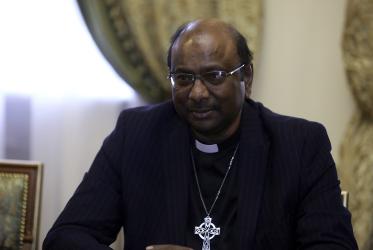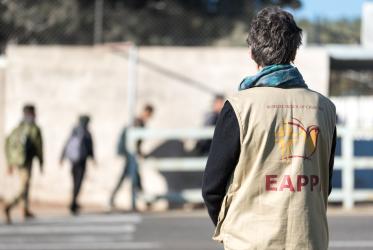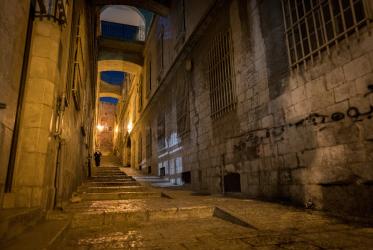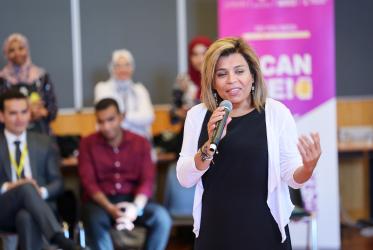Displaying 21 - 40 of 253
16 November 2023
At peace conference, WCC focuses on overcoming racism
26 October 2023
“The occupation can’t last forever”
25 October 2023
“They want to live without fear and constant harassment”
25 October 2023
Kids Feel Safe Going to School when EAs are Present
23 October 2023
Philippines delegation meets with WCC to discuss human rights
19 October 2023
ACT Alliance general secretary: “equity is not negotiable”
26 September 2023
In Armenia, WCC general secretary speaks for justice
22 September 2023
Ecumenical accompaniers report growing violence against Palestinians
21 September 2023
Ecumenical delegation visits Armenia
19 September 2023
